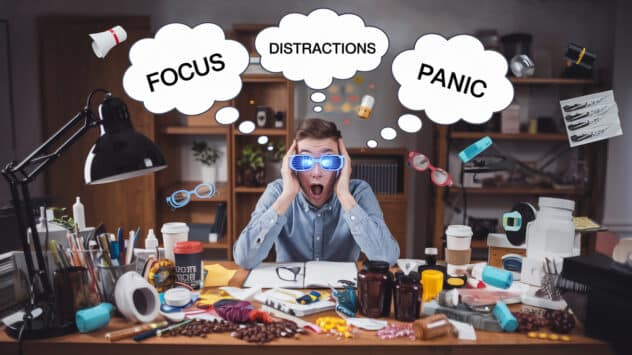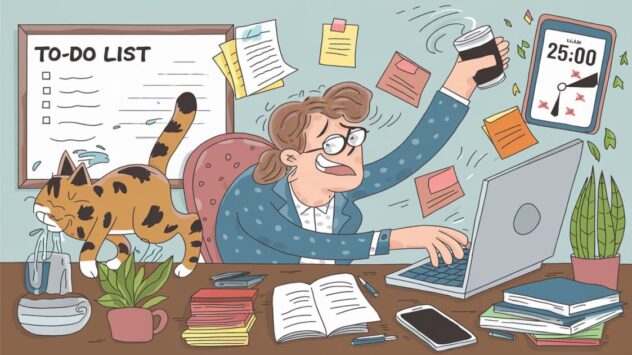
If you’ve been navigating the winding road of ADHD or any other neurodivergent traits like autism or dyslexia, you probably know the traditional treatments inside out. While medications and therapies have their place, more and more people are turning to complementary therapies to ease symptoms, feel better, and, let’s be honest, avoid becoming one with a pile of medication bottles. But are these holistic approaches really effective, or are they just another “new age” trend? Let’s explore the many ways complementary therapies might work their magic on ADHD and neurodivergent traits, and how they could help you feel more balanced, focused, and at ease.
1. Cognitive Behavioural Therapy (CBT)
We’ve all been told that “mind over matter” works wonders. Well, Cognitive Behavioural Therapy (CBT) isn’t just about “thinking happy thoughts.” It’s about challenging those negative thought patterns that keep you feeling stuck. In the world of ADHD, CBT is a real lifesaver. It helps improve executive functions (think time management, organisation, and planning), while also giving your emotional regulation a much-needed tune-up. And no, it’s not just for your inner voice’s constant criticism. It helps tackle impulsivity and gives you actual, usable strategies for overcoming the chaos in your brain. Think of it like a map for navigating the ADHD wilderness (article on CBT coming soon).
2. Mindfulness and Meditation
Mindfulness: it’s not just for yogis in Bali anymore. People with ADHD (and other neurodivergent traits) often struggle with staying present and keeping those runaway thoughts in check. That’s where mindfulness and meditation step in. By training your brain to focus on the here and now, mindfulness can improve concentration, reduce impulsivity, and help you regain control over those scattered thoughts. But it’s not all about sitting cross-legged and humming (unless that’s your vibe). Simple techniques like breathing exercises or a quick body scan can make a world of difference. And don’t even get us started on the relaxation benefits, like sleep quality, stress levels, and mood regulation all get a nice boost.
Unlock peak brain performance with science-backed biohacks. Join free now & get your guide for just £4.99 (45% off)!

3. Neurofeedback (EEG Biofeedback)
Ah, neurofeedback. Sounds like sci-fi, right? But it’s not. Neurofeedback is all about tuning your brainwaves like an instrument. Using real-time brainwave monitoring, neurofeedback trains you to produce the brainwave patterns that lead to better focus, calmness, and, most importantly, a little more control over your ADHD. It’s like putting your brain on autopilot and learning to function optimally without constantly battling distractions. While more research is needed, some studies have shown that neurofeedback can help ADHD sufferers improve their attention, impulse control, and overall brain performance. And let’s face it, who wouldn’t want to hack their brain for better focus?
4. Nutritional Therapy and Dietary Supplements
Alright, time for a hot take: the food you eat can have a bigger impact on your ADHD than you realise. Nutritional therapy isn’t just about eating healthy (though that’s definitely a good start); it’s about focusing on the specific nutrients that your brain craves. Omega-3 fatty acids, zinc, magnesium, these are the superheroes of the ADHD world. They help improve attention, emotional regulation, and cognitive function. Add in some vitamin B6, iron, and a diet rich in fruits, vegetables, and lean proteins, and you’ve got yourself a winning combo. While eliminating processed foods can also help with focus and behaviour, always check with your healthcare professional before starting any new diet plan.
5. Herbal Medicine
For those who prefer a more natural route (without turning into a herbalist), there’s herbal medicine. While it doesn’t come with a guarantee, certain herbs like Ginkgo Biloba, Rhodiola Rosea, and Bacopa Monnieri have been used for years to support brain function. These herbs may help with focus, memory, and even stress management. But a word of caution, always check with a healthcare provider before diving into herbal remedies, especially if you’re on other medications. Herbs might sound like a walk in the woods, but they can interact with prescriptions, so play it safe.
6. Acupuncture
Needle phobia? Acupuncture might just change your mind. While research on acupuncture for ADHD is still a bit “meh” (okay, maybe not a totally glowing review), some studies suggest it can reduce stress, improve sleep, and manage emotional regulation. For those who experience sensory overload or restlessness (hello, ADHD friends), acupuncture might help calm the nervous system and restore balance. Think of it as a reset button for your brain, though a bit more needle-y. Again, this isn’t a substitute for other treatments but could be a helpful addition to your toolbox (incoming blog on Acupunture soon!).
7. Massage Therapy
Last but certainly not least, we’ve got massage therapy. Yes, please! For neurodivergent individuals, massage can help manage physical and emotional stress. Whether you’re dealing with the chaos of ADHD, autism, or another trait, massage can reduce muscle tension, improve circulation, and, most importantly, bring some much-needed relaxation. While it’s not a miracle cure (sadly), it can provide some calming relief and help manage anxiety, impulsivity, and overstimulation. So, next time you feel overwhelmed, why not treat yourself to a nice massage? Your body (and mind) will thank you.
Conclusion: Holistic Approaches for ADHD and Neurodivergence
Complementary therapies aren’t just about escaping the world of medications or ignoring traditional treatments; they’re about creating a well-rounded approach to managing ADHD and neurodivergent traits. Whether you’re into mindfulness, acupuncture, or a balanced diet, these therapies can offer significant support when used alongside mainstream treatments. But always make sure to consult with healthcare professionals before starting anything new. After all, there’s no “one-size-fits-all” when it comes to ADHD and neurodivergence. So, why not give a few of these therapies a go? Who knows, your brain might just thank you for it.






